Earlier bedtimes and sleeping longer linked to improved brain function among teens, study shows
Adolescents who sleep longer and better than their peers perform better in cognitive tests, according to new research
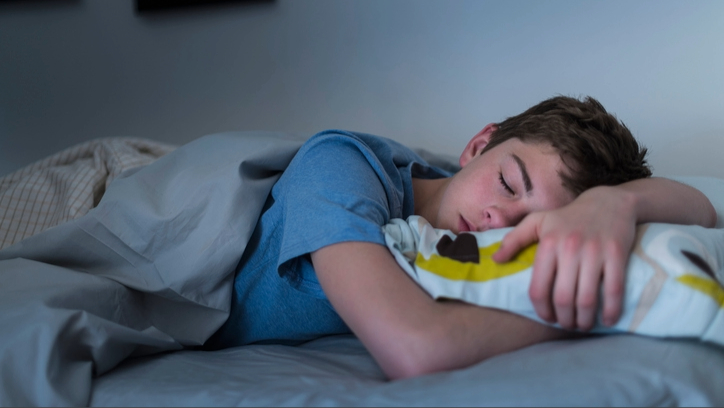
Sleep is essential for keeping our brains functioning optimally. When we are sleeping, toxins are flushed out of our brains and neural pathways are formed to consolidate memory, enhance learning and hone problem solving skills.
Now, results from a new study of adolescents in the US suggest that those who sleep longer perform better in cognitive tests. After tracking the sleep patterns of participants aged between 9 and 14 years old over a four year period, the researchers discovered that sleeping for around quarter-of-an-hour longer per night was associated with healthier brain structure and activity.
Key takeaways from the study
- Those who slept the longest had the largest brain volume and best brain function
- The ideal amount of sleep for teenagers is between 8 and 10 hours
- 39% of adolescents slept an average of 7 hours 10 minutes
The study findings, published in Cell Reports on 22 April, showed that participants who slept around 15 minutes longer than their peers each night performed better cognitively and got better quality sleep.
However, the results show even adolescents with better sleeping habits were still not clocking up enough sleep for their age group. The best sleepers slept an average of 7 hours 25 minutes, whereas the American Academy of Sleep Medicine says teenagers should sleep between 8 and 10 hours per night for optimal health.
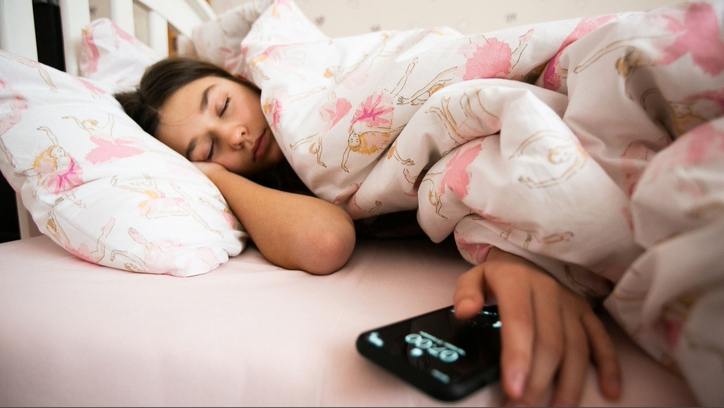
Professor Barbara Sahakian from the Department of Psychiatry at the University of Cambridge said: “Even though the differences in the amount of sleep that each group got was relatively small, at just over a quarter-of-an-hour between the best and worst sleepers, we could still see differences in brain structure and activity and in how well they did at tasks. This drives home to us just how important it is to have a good night’s sleep at this important time in life.”
Sleeping longer improves brain function, study shows
This research led by Fundan University, Shanghai, and the University of Cambridge is part of the Adolescent Brain Cognitive Development (ABCD) Study, the largest long-term study of brain development and child health in the United States.
The study enrolled more than 4,390 adolescents aged 9 to 14 years old. The teenage participants were given FitBits to track their sleep, so researchers could examine objective data on their sleep profiles.
Sign up to get the BEST of Tom's Guide direct to your inbox.
Get instant access to breaking news, the hottest reviews, great deals and helpful tips.
This data was combined with brain scans and cognitive test results to determine how sleep influences brain health and cognitive function.
There are three distinct biotypes with three different sleep patterns within the general adolescent population.
Group one sleep an average of 7 hours 10 minutes per night, and 39% of participants fell into this category. Group two, accounting for 24% of participants, slept an average of 7 hours 21 minutes. Meanwhile, group three, accounting for 37% of participants, slept the longest with an average sleep time of 7 hours 25 minutes.
The latter group tended to go to bed and fall asleep the earliest and had lower heart rates during sleep, indicating better sleep quality.
The researches found no significant differences in academic performance between the three groups. But when it came to cognitive tests assessing vocabulary, reading, problem solving and focus, group three performed the best, followed by group two, with group one exhibiting the poorest results.
How to sleep for longer for improved cognitive function
While this particular study focuses on the performance of teens, wider research shows the correlation between sleep quality and cognitive performance among adults too. With that in mind, here's three tips for sleeping longer for better cognitive function:
1. Clean up your sleep hygiene
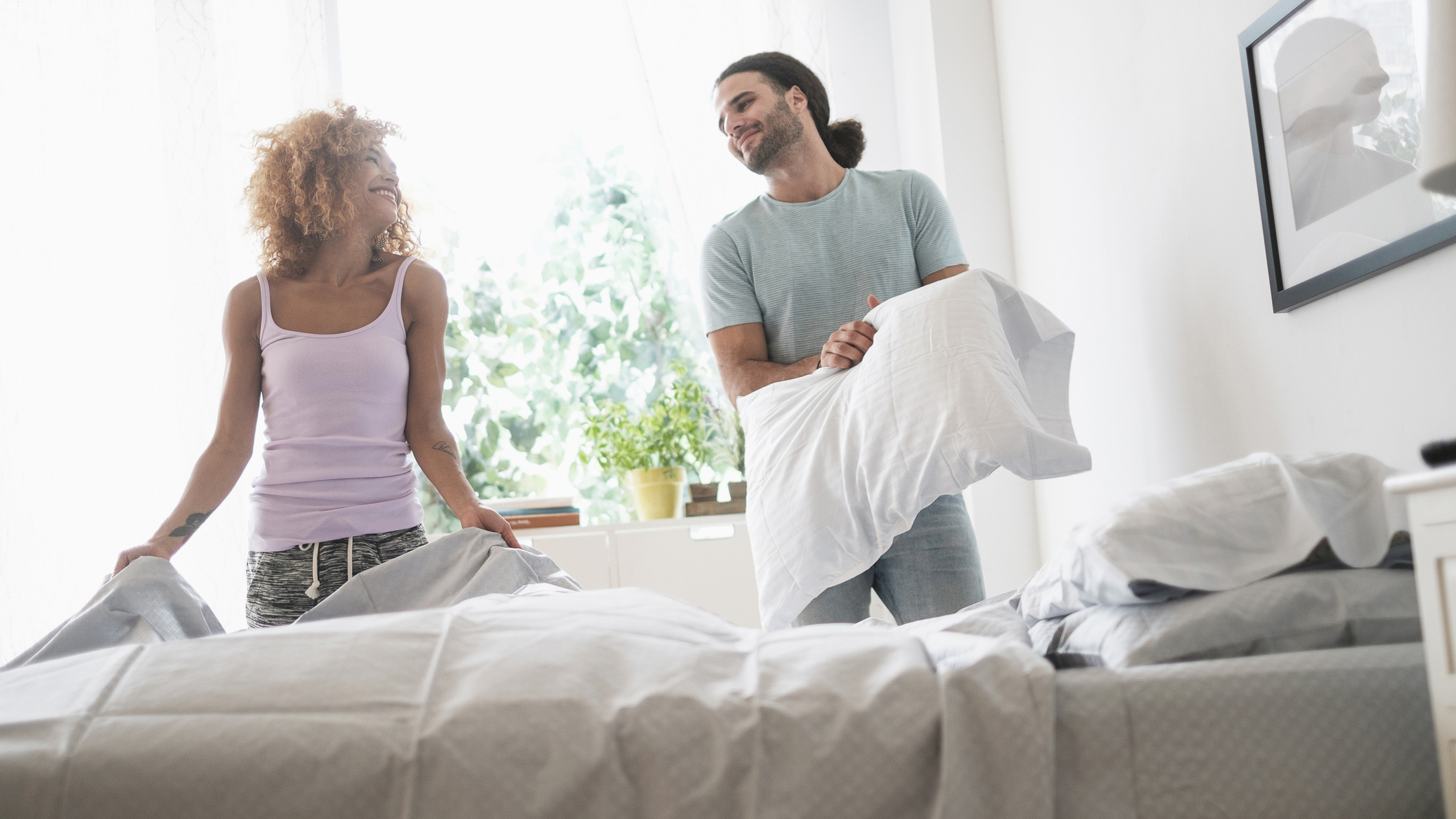
Creating the right conditions for quality sleep is the first step to resting well. Your bedroom should be relaxing, comfortable and conducive to sleep. You can create this snooze-inducing space by investing best mattress for your sleep style and needs, regularly deep cleaning your mattress and decluttering your bedroom, and blocking out residential light and noise pollution.
You should also be conscious of how lifestyle habits can impact your sleep hygiene. For example, it's recommended you avoid caffeine in the afternoon, cut out screentime in bed (studies show 1 hour of screen time in bed increases insomnia by 59%), and exercise early in the morning rather than late in the evening.
2. Set a consistent sleep schedule
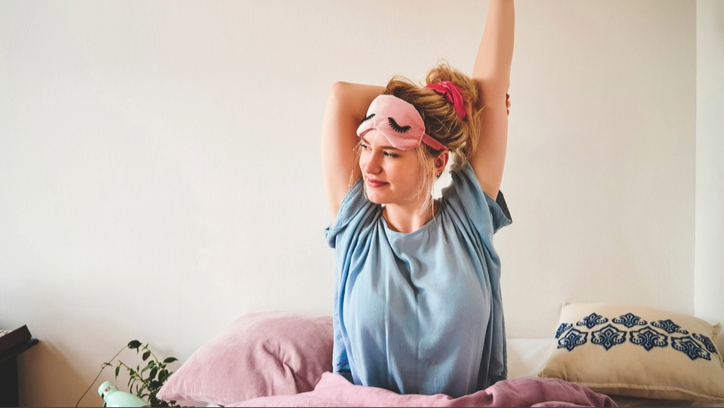
We've heard from countless experts dishing out sleep advice and tested our fair of sleepmaxxing methods here on the Tom Guide sleep team. But there's one hack we keep coming back to for better sleep, and that's a consistent sleep schedule.
Research shows sleep regularity is more important than duration. Hence, one of the best ways of making sure you bag ample good quality sleep is going to bed and waking up at the same time from Monday to Sunday.
This helps your body tune in to its circadian rhythm, meaning you'll feel sleepy around bedtime, helping you fall asleep fast, and more refreshed and alert come morning.
In fact, sticking to a consistent sleep routine helps our sleep features editor keep her sleep score in the 90s.
3. Create the habit of a nighttime routine
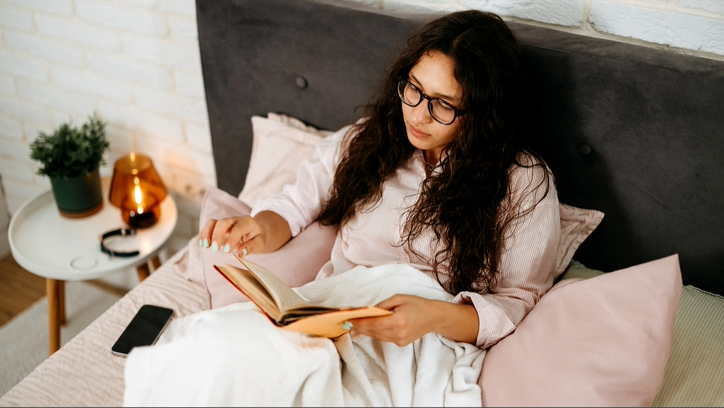
Winding down in the run up to your chosen bedtime is essential to falling asleep fast and staying asleep through the night, no matter your age.
A successful nighttime routine should follow steps that help your body recognise it is time to wind down. This can be reducing your core body temperature with a warm shower or letting go of the day's worries with meditation.
Ultimately, you should dim the lights around your home, change into comfortable, breathable clothing and indulge in an activity you find relaxing, be that reading, journaling, meditation or gentle yoga.

Eve is a PPA-accredited journalist with an MA in Magazine Journalism from Cardiff University. She is a Sleep Staff Writer at Tom’s Guide and has four years’ experience writing health features and news. She is particularly interested in the relationship between good sleep and overall health. At Tom’s Guide Eve is responsible for coverage and reviews of sleep tech and is our smart and cooling mattress specialist, focussing on brands such as Eight Sleep and Sleep Number. She also covers general mattress reviews, seeks out the best deals to produce tried-and-tested buyer's guides for sleep accessories and enjoys writing in-depth features about sleep health. She has been involved in rigorous testing procedures for mattress reviews in our Sleep Studio and has interviewed experts including sleep doctors and psychologists. When not covering sleep at Tom's Guide, Eve enjoys writing about health and fitness, food and culture.
You must confirm your public display name before commenting
Please logout and then login again, you will then be prompted to enter your display name.
